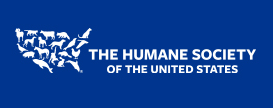An HSUS Report: Welfare Issues with Selective Breeding for Rapid Growth in Broiler Chickens and Turkeys
Abstract
Chickens and turkeys raised commercially for meat production are selectively bred to reach market weight rapidly. As consequence of unnaturally rapid growth and heavy body weight, these birds often experience skeletal and metabolic disorders that severely compromise their welfare, including lesions in the hip joint and painful leg disorders, such as angular bone deformity, tibial dyschondroplasia, and tendon rupture or slippage. Severely crippled birds may become non-ambulatory and, if unable to reach feed and water, die. Heart and circulatory disorders are also common causes of death in birds raised for meat. Selective breeding for rapid growth has inadvertently led to birds with increased appetite, and breeding stock are severely feed-restricted in order to prevent certain health and reproductive problems. As such, birds used for breeding may be chronically hungry. The prevailing mind-set in the poultry industry has been that economic considerations outweigh the welfare of individual birds. Only with a change in priorities can primary breeding companies begin to aggressively address welfare problems associated with rapid growth.

